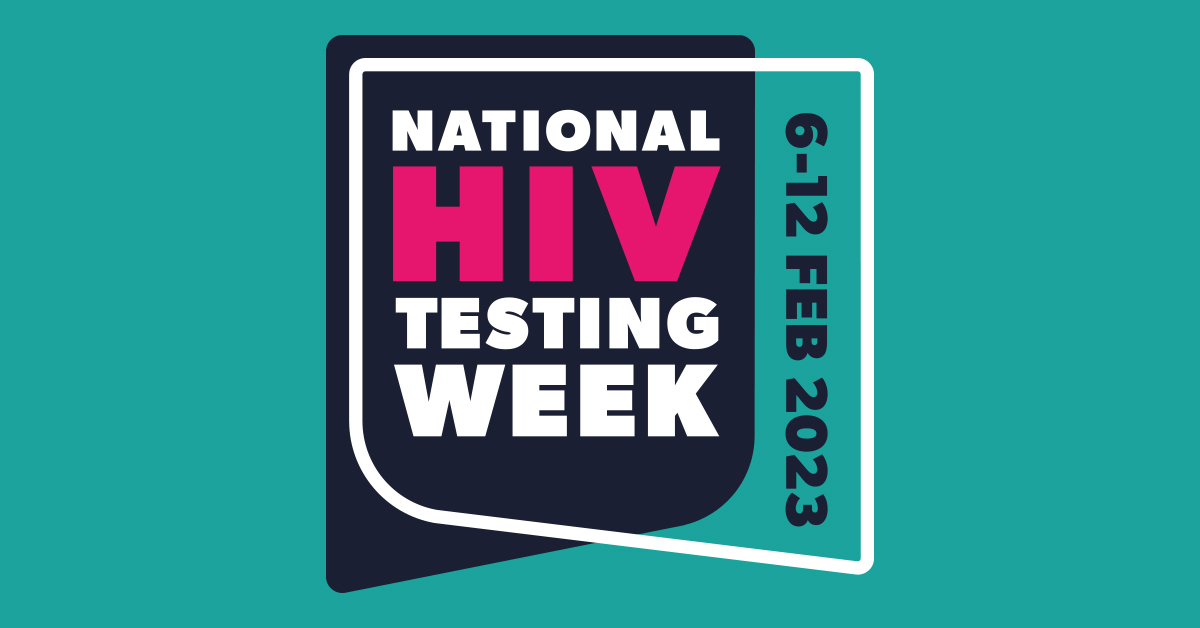
Free HIV tests to do at home with a result in just 15 minutes are available England-wide for the very first time to mark National HIV Testing Week (from Monday 6 February) and drive progress towards Government’s goal of ending new HIV cases by 2030.
It used to take weeks to get the result of an HIV test, but now it can be done in the comfort of your own home using a self-test – with just minutes to wait before finding out your HIV status. The HIV test works similarly to an at home pregnancy test or COVID lateral flow test but using a few drops of blood from a small prick on your finger.
There is also the option for people across England to order a test where a small blood sample is sent to a lab and screened for both HIV and syphilis at the same time. While, for those who prefer face-to-face services, free HIV testing is available from local sexual health clinics.
Find out how to get a test at It Starts With Me.
As well as testing technology, what it means to live with HIV has also transformed over the last four decades from a terminal diagnosis to a manageable long-term condition thanks to huge medical improvements in treating the virus.
However, around 4,400 people in England are living with undiagnosed HIV, which comes with serious health risks. The only way to know you have HIV is to test – that’s why the crucial developments in testing are being maximised to make it more convenient than ever to test for HIV.
This comes as the latest data from the UK Health Security Agency (UKHSA) shows HIV testing rates remain 20 per cent lower than before the COVID-19 pandemic – with heterosexual men in particular now testing less than in 2019. This means there are thousands of people living with undiagnosed HIV in England who are missing out on treatment.
HIV testing among gay and bisexual men increased by 23% between from 2020 to 2021, with the numbers testing 14% higher than even before Covid. But rates of testing among women have fallen by 22% compared to 2019, while there’s been a huge 41% drop for heterosexual men.
This overall drop in HIV testing comes despite big jumps in online testing since 2019, with a 199% increase in gay and bisexual men, 151% increase in heterosexual and bisexual women and 125% increase in heterosexual men.
Testing is fundamental to finding and diagnosing this population to protect their health as well as for efforts to stop HIV being passed on. The vast majority of people get the virus from someone who is unaware they have it.
Straight men and women are also far more likely to be diagnosed at a late stage, meaning they are estimated to have been unaware they’re living with HIV for at least three to five years. with 63% of heterosexual men and 47% of heterosexual women who were diagnosed in 2021 receiving their diagnosis at a late stage. This is compared to 37% of gay and bisexual men.
We're working to raise awareness of HIV among heterosexuals through its work with drama EastEnders on its high-profile new storyline where Zack Hudson is diagnosed with the virus.
We hope the ongoing storyline will help update viewers on all the medical progress in treating HIV and preventing onward transmission since Mark Fowler’s diagnosis on the soap back in 1991.
Free HIV tests are available from freetesting.hiv and are small enough to fit through a letterbox. They arrive in plain packaging with information and signposting to support alongside the test. If a positive or ‘reactive’ result is given then a confirmatory test in a sexual health clinic is necessary to make sure the result is correct.
National HIV Testing Week is an annual initiative run by Terrence Higgins Trust on behalf of the Department for Health and Social Care.

Taku Mukiwa, our Head of Health Programmes, said: 'It’s truly never been quicker, easier or more convenient to test for HIV than during this year’s National HIV Testing Week. Gay and bisexual men and black African people continue to be the most impacted by HIV in the UK, but anyone who’s sexually active can be affected and should think about testing.
'As the EastEnders HIV storyline we’ve been advising on shows, the truth is it’s always better to know your HIV status, whether positive or negative. If it’s negative, you can make sure it stays that way. While, as Zack in EastEnders is learning, huge advances in HIV treatment mean you can live a long healthy life with the virus, have children who are HIV-negative and that HIV can’t be passed on to anyone else.'
Neil O’Brien MP, Health Minister, said: 'People can live with HIV for a long time without any symptoms and testing is the only way to know your HIV status. As part of our HIV Action Plan, NHS England has made a £20 million investment in opt-out HIV testing in emergency departments in areas of extremely high HIV prevalence, to ensure people get the right treatment as early as possible.
'Testing for HIV is quick, free, confidential and easy. It can be even more convenient with the option to test for HIV in the comfort of your own home.'
Dr Alison Brown, Interim Head of HIV Surveillance at the UK Health Security Agency said: 'HIV does not discriminate, so no matter your gender or sexual orientation, using condoms and PrEP if you’re eligible are key to prevention. In the UK, people who are unaware they are living with HIV are most likely to pass the virus on to others.
'Taking up a free and confidential HIV test regularly when having condomless sex will ensure you’re diagnosed early and started on effective treatment, helping to reduce transmission of HIV and the number of people with undiagnosed HIV. In some areas HIV and STIs self-sampling kits can be done in the comfort of your own home.'
The UK is aiming to end new HIV cases by 2030 and it’s hoped making HIV testing quicker and easier than ever will help to make progress on this goal. Community organisations across England will also be providing testing and information in their local area as part of National HIV Testing Week.
It’s recommended that anyone who’s sexually active tests for HIV annually and more regularly if you have a new or multiple partners.
There are an estimated 95,900 people living with HIV in England with around 4,400 of those living with undiagnosed HIV.
Living with undiagnosed HIV is bad for your health and can lead to complex health problems if left untreated. While those living with undiagnosed HIV may also unwittingly pass on the virus to sexual partners.


